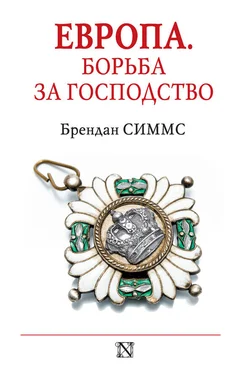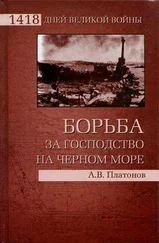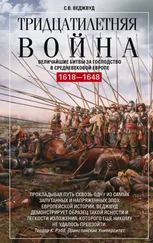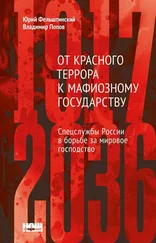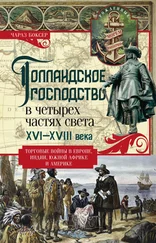William C. Fuller, The foe within. Fantasies of treason and the end of Imperial Russia (Ithaca, 2006), pp. 172–83.
Donald Quataert, The Ottoman Empire, 1700–1922, 2nd edn (Cambridge, 2005), pp. 187–8.
Rowbotham, Century of women, p. 67.
Frances M. B. Lynch, ‘Finance and welfare: the impact of two world wars on domestic policy in France’, Historical Journal, 49 (2006), pp. 625–33, especially pp. 628–29; and Paul V. Dutton, Origins of the French welfare state. The struggle for social reform in France, 1914–1947 (Cambridge, 2002), pp. 14–19.
Hildebrand, Das vergangene Reich, p. 336.
Jürgen Kocka, Facing total war. German society, 1914–1918 (Leamington Spa, 1984).
Ernst-Albert Seils, Weltmachtstreben und Kampf für den Frieden. Der deutsche Reichstag im Ersten Weltkrieg (Frankfurt, 2011), pp. 194–7.
Seton-Watson, Decline of Imperial Russia, p. 712.
ibid., p. 723. О парламентской критике германского господства: M. M. Wolters, Aussenpolitische Fragen vor der vierten Duma (Hamburg, 1969), pp. 122–34.
Klaus Schwabe, Woodrow Wilson, revolutionary Germany and peace-making, 1918–1919. Missionary diplomacy and the realities of power (Chapel Hill and London, 1985), p. 256.
Klaus Hildebrand, Das vergangene Reich. Deutsche Aussenpolitik von Bismarck bis Hitler (Stuttgart, 1995), p. 781.
Halford Mackinder, Democratic ideals and reality (London, 2009 [1919]), p. 70.
John Darwin, The Empire project. The rise and fall of the British world system, 1830–1970 (Cambridge, 2009), pp. 335 and 348.
Charles Seymour (ed.), The intimate papers of Edward House arranged as a narrative by Charles Seymour (Boston and New York, 1926–8), p. 323. President Wilson Flag Day address, 14 June 1917. Благодарю Чарльза Ладермана за это указание.
Tony Smith, America’s mission. The United States and the worldwide struggle for democracy in the twentieth century (Princeton, 1994), pp. 92 and 84.
В Германии критики Вильсона заявляли, что политика союзников направлена не на «деморализацию или подчинение Германии, а на подчинение Германии через деморализацию». См.: Peter Stirk, ‘Hugo Preuss, German political thought and the Weimar Constitution’, History of Political Thought, 23, 3 (2002), pp. 497–516 (quotation p. 515).
The State Secretary (Kühlmann) to the foreign ministry liaison officer at general headquarters, 3 December 1917, Berlin, in Z. A. B. Zeman (ed.), Germany and the revolution in Russia, 1915–1918. Documents from the archives of the German foreign ministry (London, 1958), p. 94.
‘Decree on peace’, 8.11.1917, in Jane Degras (ed.), Soviet documents on foreign policy (London, 1951), pp. 1–2.
Michael A. Reynolds, ‘Buffers not brethren: Young Turk military policy in the First World War and the myth of Panturanism’, Past and Present, 203 (2009), pp. 137–79.
John Thompson, Woodrow Wilson (Harlow, 2002), p. 170.
Darwin, Empire project, pp. 313–14.
Jonathan Schneer, The Balfour Declaration. The origins of the Arab—Israeli conflict (London, 2010), pp. 343–5 (quotation p. 343).
David Aberbach, ‘Zionist patriotism in Europe, 1897–1942. Ambiguities in Jewish nationalism’, International History Review, 31, 2 (2009), pp. 268–98, especially pp. 277–9 (quotations pp. 281 and 287). О страхах британцев в отношении еврейских симпатий к Германии: John Ferris, ‘The British Empire vs. The Hidden Hand: British intelligence and strategy and “The CUP – Jew – German – Bolshevik combination”, 1918–1924’, in Keith Neilson and Greg Kennedy (eds.), The British way in warfare: power and the international system, 1856–1956. Essays in honour of David French (Farnham, 2010), p. 337. Об уверенности французов в силе международного сообщества: David Pryce-Jones, Betrayal. France, the Arabs, and the Jews (New York, 2006), pp. 28–32.
Balfour note, 25.4.1918, in James Bunyan (ed.), Intervention, civil war, and communism in Russia, April – December 1918. Documents and materials (Baltimore, 1936), p. 73. Также: Benjamin Schwartz, ‘Divided attention. Britain’s perceptions of a German threat to her eastern position in 1918’, Journal of Contemporary History, 28, 1 (1993), pp. 103–22 (quotation pp. 118–19).
Caroline Kennedy-Pipe, Russia and the world, 1917–1991 (London and New York, 1998), pp. 18–23.
John Plamenatz, German Marxism and Russian communism (London, 1954).
R. Craig Nation, Black earth, red star. A history of Soviet security policy, 1917–1991 (Ithaca, 1992), pp. 2, 120 and 15.
Timothy Snyder, The red prince. The fall of a dynasty and the rise of modern empire (London, 2008).
Здесь большевики смогли обеспечить мобилизацию; см.: Peter Holquist, Making war, forging revolution. Russia’s continuum of crisis, 1914–1921 (Cambridge, Mass., and London, 2002), pp. 285–6 and passim.
ibid., p. 121.
J. F. McMillan, Twentieth-century France. Politics and society 1898–1991 (London, 1992), p. 73.
Alan Axelrod, Selling the Great War. The making of American propaganda (Basingstoke, 2009), pp. 63–5, 143–4 and passim.
C. Cappozzola, Uncle Sam wants you. World War I and the making of the modern American citizen (Oxford, 2008), especially pp. 207–14; Adriane Lentz-Smith, Freedom struggles. African Americans and World War I (Cambridge, Mass., 2009), pp. 3–5.
Wilhelm Deist, ‘The military collapse of the German Empire: the reality behind the stab-in-the-back myth’, War in History, 3 (1996), 186–207.
Gary Sheffield’s rehabilitation of Lord Haig, Forgotten victory. The First World War: myths and realities (London, 2001). Также: John Mosier, The myth of the Great War. A new military history of World War I (London, 2002), pp. 327–36 and passim.
John Horne (ed.), State, society and mobilisation in Europe during the First World War (Cambridge, 1997), p. 16 and passim.
Hildebrand, Das vergangene Reich, p. 390.
Clemens King, Foch versus Clemenceau. France and German dismemberment, 1918–1919 (Cambridge, Mass., 1960).
Patrick O. Cohrs, The unfinished peace after World War I. America, Britain and the stabilisation of Europe, 1919–1932 (Cambridge, 2008), p. 213.
Читать дальше
Конец ознакомительного отрывка
Купить книгу
